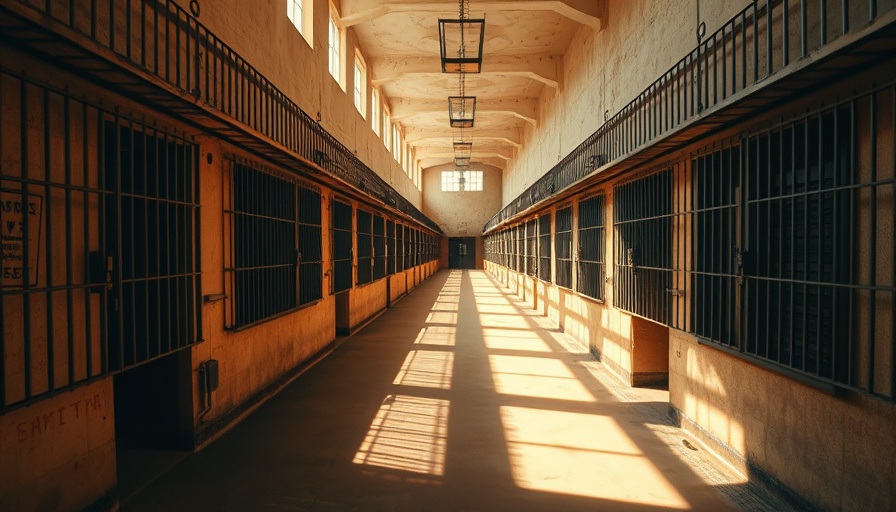
Judge Rules Extreme Heat in Texas Prisons is Unconstitutional: What This Means for Inmates' Rights
In a landmark ruling, federal Judge Robert Pitman has declared that housing prisoners in excessively hot conditions without air conditioning constitutes a violation of their constitutional rights. This decision follows an increasing number of lawsuits highlighting the dangers faced by inmates in Texas prisons, particularly during the sweltering summer months. The ruling has significant implications not only for Texas's prison system but also sets a precedent that may influence similar legal battles across the Southern United States, where extreme temperatures are often a reality.
The Current Extremities of Texas's Prison Conditions
With more than 130,000 inmates, Texas operates the largest prison system in the nation. Alarmingly, only about one-third of its 100 prison units are fully air-conditioned. Reports indicate that the oppressive heat has prompted some inmates to resort to desperate measures, such as faking suicide attempts or igniting fires within prison facilities, as a means of escaping unbearable conditions. In 2023, the Texas Department of Criminal Justice acknowledged that excessive heat contributed to fatalities among inmates, further exacerbating concerns over human rights within the state's correctional facilities.
Legal Precedents and Future Trends in Custodial Care
Judge Pitman's ruling may pave the way for substantial changes in the legal landscape regarding inmate treatment nationwide. Many states with similar climates face challenges when it comes to ensuring humane living conditions for prisoners. For instance, Louisiana has also seen inmates seeking judicial protection from extreme temperatures. These rising legal actions signify a growing awareness and acknowledgment of prisoners’ rights, potentially transforming the mechanisms of state prisons across vulnerable states.
Legislative Responses and Financial Implications
As discussions deepen surrounding the cruel realities of Texas prisons, state lawmakers are being urged to take action. The Texas Department of Criminal Justice has requested $118 million from legislators to install air conditioning units capable of supporting 16,000 additional beds. However, with trial proceedings underway and an immediate fix appearing unlikely, critical questions remain: Will the state government respond promptly to these dire needs? How might future legislation shape the ongoing discourse around prisoner welfare?
The Broader Context: Heat and Human Rights
This ruling not only impacts prisoners in Texas but also serves as a pivotal juncture that could redefine standards for heat exposure in correctional facilities nationwide. The debate over whether conditions conducive to extreme heat are tantamount to cruel and unusual punishment is finally gaining traction, shedding light on the broader conversation surrounding human rights in U.S. prisons.
Understanding the Emotional Impact on Inmates and Society
Living in a facility where heat consistently exceeds safe thresholds can have long-lasting psychological effects on inmates. These circumstances can surmount feelings of hopelessness and despair, adversely impacting mental health. In light of this, society must reflect on the gravity of confined individuals' experiences and re-evaluate the treatment of those within the penitentiary system.
What Lies Ahead for Texas Prisons
The road to reforming Texas’s prison conditions may be fraught with challenges, but Judge Pitman’s ruling is a significant victory for advocates of prisoner rights. As stakeholders in society, it is essential that we stay informed about this issue's progress and remain engaged in the push for humane treatment across all correctional systems.
In conclusion, as the situation develops, staying updated on the changes in prisoner rights and heat regulations will be crucial. The potential impact of this ruling encourages us all to advocate for humane treatment for inmates.
 Add Element
Add Element  Add Row
Add Row 



Write A Comment